Our Services
Our Debt Management Services
Our team of Angels has the experience, knowledge, empathy, and passion to guide you through your Get-Out-Of-Debt Journey!
- Trusted
- Experienced
- Professional
We will be with you every step of the way to coach and guide you, lift you up on those tough days, inspire and motivate you to stay the course, educate you so that you can not only recover but stay debt- free and of course, Debt’O’Nate your existing debts!
Debt Assessment Consultation Call
We start with a confidential discussion to get a clear understanding of your financial position and what your debts are costing you. We listen to you with compassion, without judgment and then using our industry knowledge and information about your individual situation, we will discuss your proposed Get- Out-Of-Debt Strategy.
Client & Creditors Mediation
If you find yourself unable to pay back your debts, an independent third party can be engaged to work with creditors on your behalf. The benefit of an experienced agency like Debt Angel Solutions acting on your behalf ais that they already know what creditors can and can’t, will and won’t do, what to ask for and how far to push to get the best possible outcome.
Debt Negotiation
Debt negotiation is a discussion between a creditor and yourself to find a mutually agreeable amount to settle on. As the money lender is usually more experienced at this and it may be a very new experience for you, it can be beneficial to engage the services of an experienced debt negotiator. A paid debt negotiation and debt management service like Debt Angel Solutions works in a similar way to that of a financial counsellor. The difference is, they are a paid service that do the negotiations for you and manages the outcomes for you as long as you need.
Our Debt Management Services Team:
- We act as mediators between clients and creditors, providing our clients with the time and space to focus on their finances, health and mental well-being.
- We work with our clients to develop financial problem-solving skills and money mindfulness.
- We negotiate Informal Debt Agreements for our clients, aiming to enhance the manageability and long-term viability of their financial commitments.
What are Informal Debt Agreements
- Customised agreements between debtors and creditors.
- Negotiated directly without formal legal proceedings.
- Tailored repayment plans based on the debtor’s financial capabilities.
- Aims to facilitate manageable debt repayment outside legal frameworks.
Examples of Informal Debt Agreements:
- Reduced or frozen interest charges for an agreed duration.
- Long-term arrangements
- Loan variations
- Serviceability agreements
- Partial or full debt-waivers
Definitions of Informal Debt Agreements
Reduced or frozen interest charges for an agreed duration:
This agreement involves temporarily lowering or stopping the accrual of interest on outstanding debt for a specified period. It provides the debtor with some relief by alleviating the burden of accumulating interest charges, allowing them a window of time to get on top of their finances without the added pressure of increasing interest costs.
Long-term arrangements:
These arrangements involve restructuring the terms of the debt to create a more manageable payment schedule over an extended period. Instead of demanding immediate repayment or enforcing strict timelines, long-term arrangements offer debtors an extended duration, often years, to gradually repay the owed amount in smaller installments.
Loan variations:
Loan variations in debt relief aim to make the repayment terms more manageable for the debtor, providing a structured approach to clear the debt while potentially lowering overall financial stress. This could involve modifying the terms of the loan, such as extending the repayment period and/or repayment amount.
Serviceability agreements:
Putting your account in serviceability means after a period of reduced or no payments, you might have the option to show you can now service and maintain the loan, on time every time, usually over a period of 6 months. Once this outcome is achieved, you can request that the arrears amount is “capped’ – meaning it is added to the end of the credit contract.
Partial or full debt-waivers:
Partial or full debt waivers are debt relief solutions where creditors agree to forgive a portion or the entirety of the outstanding debt owed by the debtor. Typically awarded to debtors facing extreme or dire situations, these arrangements involve the creditor voluntarily relinquishing the claim to a portion or the entire debt amount. This forgiveness could be granted due to extreme financial hardship, insolvency, or as part of negotiated settlements. Partial or full debt waivers offer a direct and impactful solution by reducing the overall debt burden, providing significant relief to the debtor and, in some cases, a chance for a fresh financial start.
Benefits of Informal Debt Agreements
- Flexible Payment Arrangements: Allows for negotiation of flexible payment terms designed to accommodate your financial capacity.
- Avoids Legal Proceedings: Helps prevent legal actions like bankruptcy or court judgments against you.
- Protection from Relentless Pursuit by Creditors: Provides a buffer against potentially aggressive creditor actions, reducing pressure and stress for the clients.
- Debt Reduction Potential: Offers potential for reduced debt balance through negotiations with creditors.
- An Alternative To Bankruptcy: Maintains financial arrangements privately, bypassing the public records linked to formal agreements and averting the aftermath of bankruptcy declaration.”
- Potential Credit Rating Improvement: Provides a chance to maintain or improve your credit score compared to formal insolvency arrangements.
Ready To Start Living Free From Debt?
To get started, please complete our short form.
















